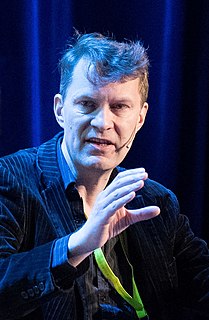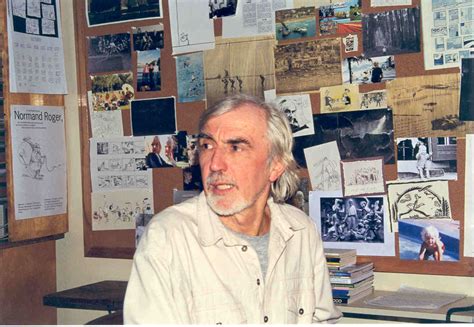A Quote by Dalai Lama
Many of the earth's habitats, animals, plants, insects and even micro-organisms that we know to be rare may not be known at all by future generations. We have the capability and the responsibility to act; we must do so before it is too late.
Related Quotes
In the Gaia theory air, water, and soil are major components of one central organism, planet Earth. What we typically think of as life - the plants and animals that inhabit the earth - has evolved merely to regulate the chemistry of the biosphere. Humans are insignificant participants, far less important to the life cycle than termites. Even the imbalance that we have created by adding massive quantities of carbon dioxide to the atmosphere may be brought back to acceptable levels by other organisms functioning in their capacity to correct excesses.
Scientists have been saying, for an awfully long time, that we're all interconnected. Scientists would use the word 'ecosystem' to express that idea. Obviously, people can't survive without air and water, and we rely on plants and animals for food, and plants and animals rely on us to preserve their habitats.
In the past we could afford a long gestation period before undertaking major environmental policy initiatives. Today the time for a well-planned transition to a sustainable system is running out. We may be moving in the right direction, but we are moving too slowly. We are failing in our responsibility to future generations and even the present one.
The environment is everything that makes up our surroundings and affects our ability to live on the earth - the air we breathe, the water that covers most of the earth's surface, the plants and animals around us, the overall condition of our planet, and much more. Protecting the environment is really important to everyone's welfare - that of our children, as well as that of the future generations.
The world of organisms, of animals and plants, is built up of individuals. I like to think, then, of natural history as the study of life at the level of the individual-of what plants and animals do, how they react to each other and their environment, how they are organized into larger groupings like populations and communities.
Germany's hierarchical reverence for seniority may have something to do with the fact that everything here happens relatively late. Germans start school at six, graduate in their late 20s, and get their first proper jobs in their 30s. Adolescence can go on a long time. It is rare for anyone to achieve responsibility before their 50s.
What a difference that extra 120 ppm has made for plants, and for animals and humans that depend on them. The more carbon dioxide there is in the atmosphere, the more it is absorbed by plants of every description - - and the faster and better they grow, even under adverse conditions like limited water, extremely hot air temperatures, or infestations of insects, weeds and other pests. As trees, grasses, algae and crops grow more rapidly and become healthier and more robust, animals and humans enjoy better nutrition on a planet that is greener and greener.








































